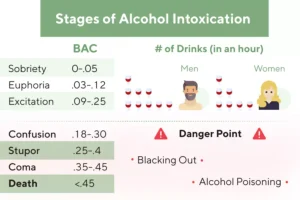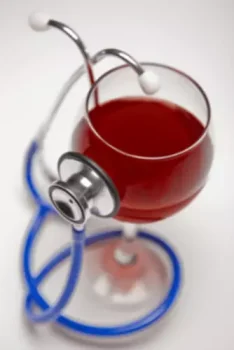
There was at best weak evidence to support the use of medications to treat AUD among those with comorbidity with PTSD. Naltrexone was effective in decreasing craving in those studies that evaluated it (Foa et al. 2013, Petrakis et al. 2012). Topiramate was promising as it was effective in decreasing alcohol use, https://ecosoberhouse.com/ but thus far has only been evaluated for comorbidity in one small study. If you are dealing with PTSD and not a substance use disorder as well, AAC can help with that, too. Beginning later this year, AAC will offer primary mental health services at the River Oaks Treatment Center, not far from Tampa, Florida.
PTSD and Alcohol in Veterans

Additional interventions that integrate cognitive behavioral and other therapeutic approaches include emotion-focused therapy79 and brief eclectic psychotherapy.80 The empirical literature on these approaches is limited, but the research demonstrates promising findings. Due to the nature of traumatic events veterans experience such as being threatened, high stress environments, death, severe injuries, violence, and sexual trauma, veterans are often deeply impacted after combat. Different psychotherapeutic techniques and therapies may be used to treat comorbid AUD and PTSD. Psychotherapy, also known as talk therapy, can help people identify their emotions and triggers for symptoms to help them develop better coping mechanisms. The type of treatment that is best for you can depend on the type of trauma you experienced. PTSD and alcohol abuse may occur together due to the tendency of people diagnosed with PTSD to engage in self-destructive behavior and the desire to avoid thinking about the trauma.

Treatment For PTSD and Drinking
- U.S. surveys, such as the St. Louis sample of the ECA,8 the NCS,16 and the NESARC,23 have consistently found relationships between alcohol problems and PTSD.
- Individuals with CPTSD may use substances like alcohol or drugs to cope with their emotional distress and psychological symptoms resulting from prolonged trauma exposure.
- This was a proof of concept study evaluating the neurokinin-1 receptor antagonist aprepitant.
- The conclusions from this review suggest that there is not one agent that has clear evidence of efficacy in this comorbid group.
1 in 3 veterans currently getting treatment for substance abuse suffer from PTSD. From 2003 to 2009, there was a 56 percent increase of veterans getting treatment for alcoholism. After traumatic experiences, it is common for suffers of trauma to experience helplessness, suicidal thoughts, aggression, self-harm, depression and anxiety. Once people experience traumatic circumstances, they can also develop guilt and shame which can manifest in alcohol and/or drug dependency. Alcohol dependency can worsen PTSD symptoms and create uncomfortable side effects. Assisting PTSD alcoholic family members may be especially difficult because people aren’t labels, they’re just a loved one struggling with an alcohol addiction.

Relationship Between PTSD and Addiction
- It is among the first studies to examine the effects of trauma cues and stress (non-trauma) cues on alcohol craving, mood, physiological and neuroendocrine responses, and demonstrates the powerful effects of trauma cues on alcohol craving and consumption.
- There is a small but growing literature of pharmacotherapies to treat AUD with comorbid PTSD.
Although preliminary, initial findings demonstrate COPE’s ability to produce significant and sustained symptom reduction, and lend support for the acceptability and tolerability of the COPE treatment among a Veteran population (Back et al., 2012). Research also documents high rates of comorbid PTSD/SUD among Veterans (Centers for Disease Control and Prevention, 1988; Shipherd, Stafford, & Tanner, 2005). A recent study (Petrakis, Rosenheck, & Desai, 2011) using national administrative data from the Department of Veterans Affairs indicated that, among Veterans who had served in Vietnam era or later, almost half (41.4%) with an SUD were dually diagnosed with PTSD. In research and practice, several notable gaps exist in addressing co-occurring PTSD and AUD in military and veteran populations. First, although military service appears to increase risk for the comorbid conditions, more research is needed to identify factors that contribute to the increased risk for the development of these disorders within the specific military context.
Patients with PTSD have been shown to be up to 14 times more likely than patients without PTSD to have an SUD (Chilcoat & Menard, 2003; Ford, Russo, & Mallon, 2007). The variation in estimates observed across the aforementioned studies is likely attributable to differences in the types of clinics sampled, variant patient populations and measurement techniques employed. New research has found that psilocybin reduces alcohol consumption in ptsd and alcohol abuse rats by altering the left nucleus accumbens in the brain. While we wait for definitive trials leading to FDA medication approvals in humans, promising studies using neuromodulation of the brain as well as treatment with ketamine and other psychedelics are encouraging. Most recently, real-world human studies have been very positive in reporting decreases in drinking for diabetic patients treated with GLP-1s (think Ozempic and Wegovy).
Co-Occurring Alcohol Use Disorder and Post-Traumatic Stress Disorder – Editor’s Note

It should not be used in place of the advice of your physician or other qualified healthcare providers. Data from the Department of Veterans Affairs indicates that as many as 63 percent of veterans diagnosed with alcohol use or other substance use disorder also meet the diagnostic criteria for PTSD. While PTSD does not result solely from trauma experienced with military duty, PTSD and alcohol abuse in veterans are occurring at higher rates than in the general population. Seeking treatment for a substance use disorder and PTSD have increased at least 300 percent in recent years. Paroxetine did not show statistical superiority to desipramine for the treatment of PTSD symptoms. However, desipramine was superior to paroxetine with respect to study retention and alcohol use outcomes.
- Therefore, we do not know the extent that risk factors may increase the risk for one disorder or both, or whether these risk factors may have additive or interactive effects.
- Topiramate was promising as it was effective in decreasing alcohol use, but thus far has only been evaluated for comorbidity in one small study.
- It is noteworthy that the studies involving a medication with a robust behavioral platform seem to have had the best results.
- In the paper by Emerson and colleagues (2017), the authors examined the association between AUD and PTSD in American Indians/Alaskan Natives (AIAN) as compared to non- Hispanic Whites (NHW).
- Because efficacy may be different in those with comorbid conditions, treatments for multi-morbidities need to be tested empirically.
If a person is identified with pre-addiction before alcohol issues become entrenched and then receives treatment, major emotional and physical pain could be averted. This post covers the range of problematic alcohol use from pre-addiction to AUD. It’s crucial to understand that individuals who are clinically dependent on alcohol may face severe health risks if they abruptly cease drinking.